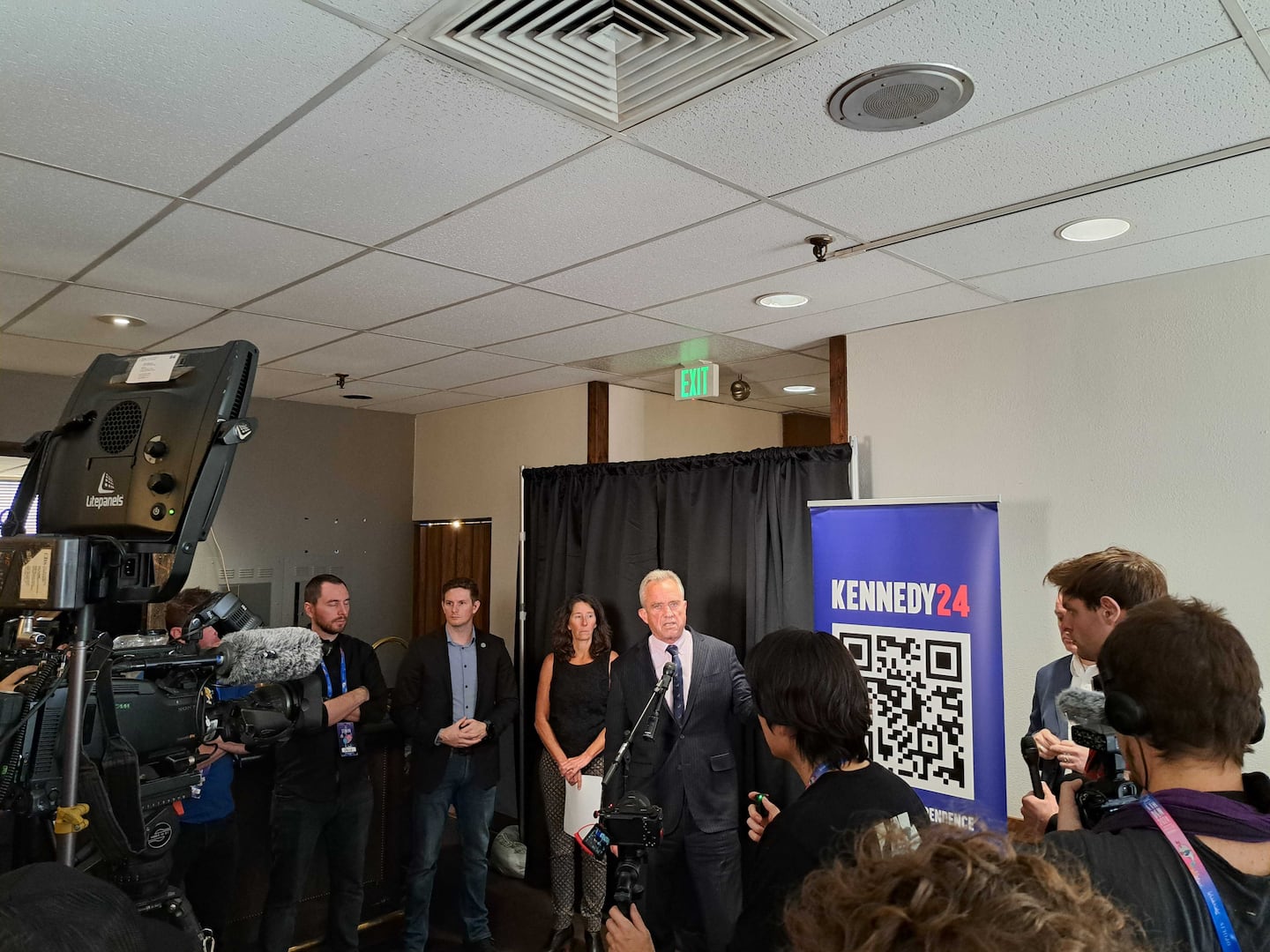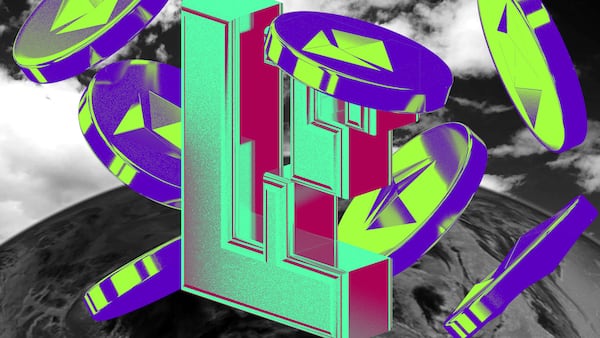- DeFi came out big time this year at 'best ETHDenver ever.'
- Bitcoin advocate Robert F. Kennedy Jr. made his pitch for crypto-loving voters.
- Interoperability is back as borders between crypto projects blur.
Crypto conferences are one of the few times investors get to see the faces behind the $2.5 trillion industry.
Among these exposures, ETHDenver is the biggest — last year saw 15,000 attendees from more than 115 different countries.
With an increasingly saturated circuit of crypto events spanning several continents, you might think attendees would be getting bored — not so. Creating a decentralised, permissionless, and scalable way to transact value is an iterative process, and no one knows that better than Ethereum’s faithful.
“It’s the best ETHDenver yet,” said many of the attendees I spoke to, ranging from crypto executives, to curious dabblers, and even some of my fellow journalists.
Cleansing rally
Soaking up the vibe in ETHDenver, it’s hard to believe that just a few months ago crypto’s fortunes looked very, very different.
Plunging valuations, the FTX collapse, and a spate of costly hacks was causing even the most die-hard believers to question if crypto would come back.
But a rally has a way of wiping the slate clean. In the month leading up to the event, Ethereum experienced a 50% tear, taking the asset to its highest price since early 2022.
As a first timer at Spork Castle, the affectionately named main event hall, my only point of reference was EthCC, the biggest European Ethereum conference with limited tickets that cost upwards of $500.
The free-to-enter ETHDenver had a decidedly more American feel.
The food on offer was sugary, greasy and gut-busting. Beers cost $15, and politics was ever present.
This year even commanded a much-hyped, and perhaps last minute addition of a press conference and fireside chat with independent presidential hopeful Robert F Kennedy Jr — or RFK Jr to many of his supporters.
So with the cool Colorado breeze in my hair, I ventured past the bomb-sniffer dogs and metal detectors to see what ETHDenver could tell me about the state of the crypto industry and those investing in it.
Kennedy comes to ETHDenver
When I found out there was to be an exclusive press conference with Kennedy at ETHDenver, my feelings were mixed.
Still, I couldn’t not go, it would be journalistic malpractice. And in the end, I’m very glad that I did.
On an unusually warm Saturday afternoon, Kennedy emerged from behind a black curtain in a back room of the conference, surrounded by several intimidating looking bodyguards with earpieces.

His voice sounded frail and raspy, which I later learned was due to his spasmodic dysphonia, a voice disorder that gives his speech a strained quality.
Still, the presidential hopeful maintained his composure and it wasn’t long before he was drawing out laughs from the crowd.
One reporter offered a winding question about what Kennedy was doing to make himself a more appealing candidate to crypto supporters.
“Well, I came here,” he pointedly said in return.
When it was my turn to ask a question, I probed the candidate on his staunch environmental beliefs and support of Bitcoin.
When it was my turn to ask a question, I probed the candidate on his staunch environmental beliefs and support of Bitcoin, which, despite much improvement in recent years, still relies heavily on non-renewable energy.
To my surprise, his answer hit all the right talking points. He explained how sustainable Bitcoin mining can help subsidise green energy projects by monetising the excess energy. It was clear Kennedy’s understanding and support of crypto was more than superficial — he gets it.
However, immediately after, he dealt with a joke question about whether Bitcoin causes autism perhaps a little less well.
“Correlation does not equal causation,” he said.
“The science is still up for debate?” the asker said.
“Exactly.”
His response was clearly in jest. But the exchange and the topic reminded me of Kennedy’s previous track record of promoting public health conspiracy theories, something which many of his supporters at the event seemed desperate to overrule.
“He’s not anti-vax,” one volunteer at the Kennedy booth told me. “You have to think, did I hear him say that, or was it the mainstream media?”

I asked why she and others had come to ETHDenver to campaign.
“People are fed up,” she said, drawing a broad comparison to the general malaise people in crypto have with the existing financial system.
An idea I heard several times during the conference was that the crypto-initiated and Kennedy supporters have a lot in common — they’re both offering an alternative to the existing order whether that be the two-party system in Washington or the monetary policies of central banks across the globe.
I wasn’t sure if RFK represented a real alternative. But judging by the amount of pin badge clad attendees, many at ETHDenver certainly did.
Younger generations want a plan B
Conferences like ETHDenver are renowned for their side events, lavish and often unofficial parties hosted by companies with excessive marketing budgets or crypto whales looking to flaunt their wealth.
Consensys, the company behind the popular crypto wallet MetaMask, invited me to their event, a modest happy hour at a local hotel bar.
One MetaMask employee, who said he was 50, brought up how he had struggled to get other people his age excited about crypto.
“They’ve had it too good for too long,” he theorised. The reason younger generations are interested, he said, was because they “need a plan B.”
Certainly, millennials are the primary owners of crypto, with a recent study revealing over 76% of crypto buyers were aged between 25 and 40.
Millennials, the most populous generation in US history, are also enduring slow wage growth, unaffordable housing, and soaring prices due to emergency spending during the pandemic.
After the event, I was invited to a semi-secret Consensys house party, which I was assured would be a wild time.
I’d heard rumours that the night before members of the Bitcoin maximalist crowd — crypto fans who denounce all other cryptocurrencies except Bitcoin — had hosted their own raucous house party where attendees reportedly dyed their hair orange and got spur-of-the-moment Bitcoin tattoos.
But at Denver’s 6,000 foot elevation, alcohol hits a bit harder than you’re used to, so after three drinks I decided to call it a night.
ETHDenver, or everyone Denver?
Like the broader crypto ecosystem, the lines between different projects are becoming increasingly blurred. And ETHDenver, which started in 2018 as a close-knit event for Ethereum’s diehard fans and builders, is also following this trend.
Projects like Solana, Polkadot, which have both been lauded as “Ethereum killers” in the past had pitched camp on the booth floor and hosted official ETHDenver events.
Their presence, I thought, reflected the push towards interoperability happening within the broader blockchain ecosystem.
Chains such as Solana and Ethereum, which used to be closed off from each other due to their different software implementations, are now easy to transverse between thanks to specialised protocols like Wormhole, LayerZero, and Axelar.
So it only made sense that I should be able to chat with the team behind top Ethereum layer 2 blockchain Arbitrum and then find Solana developers right around the corner.
Ever-present tribalism
My inner cynic knows the reason for so much diversity at an Ethereum conference was purely financial. As long as a project has got the dough, they can buy as many booths and sponsorships as they want.
But at the same time, I wondered if the situation also had some positives, and that it might be helping to break down the ever-present tribalism and feuding between different blockchains and DeFi protocols.
Then again, Denver is a city where you can’t walk two blocks without a waft of cannabis invading your nostrils, so it could’ve just been that.
Tim Craig is DL News’ Edinburgh-based DeFi Correspondent. Reach out with tips at tim@dlnews.com.









